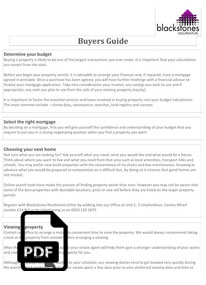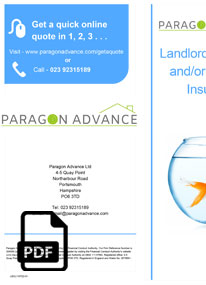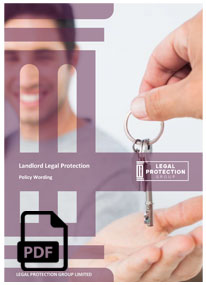We know that buying a house, though exciting, can be daunting. These steps below serve as a guide to help you through the process.
Determine Your Budget
Buying a property is likely to be one of the largest transactions you ever make. It is important that your calculations are correct from the start.
Before you begin your property search, it is advisable to arrange your finances and, if required, have a mortgage agreed in principle. Once a purchase has been agreed, you will have further meetings with a financial advisor to finalise your mortgage application. Take into consideration your income, any savings you wish to use and if appropriate, any cash you plan to use from the sale of your existing property (equity).
It is important to consider the essential services and taxes involved on buying a property into your budget calculations. The most common include – stamp duty, conveyance, searches, land registry and surveys.
Select the Right Mortgage
By deciding on a mortgage, first you should give yourself the confidence and understanding of your budget that will require you to put on a strong negotiating position when you find a property you want.
Choosing your Next Home
Not sure what you are looking for? Ask yourself what you need, what you would like and what would be a bonus. Think about where you want to live and what you need from that area such as local amenities, transport links and schools. You may prefer new build properties with the convenience of no chains and low maintenance. Knowing in advance what you would be prepared to compromise on is difficult but, by doing so it ensures that good homes are not missed.
Online search tools have made the process of finding property easier than ever, however you may not be aware that some of the best properties with desirable locations, price or size sell before they are listed on the larger property portals.
Register with Blackstones by walking into our office or telephoning us.
Viewing a Property
To arrange a mutually convenient time to view the property, contact our office. We always recommend taking a look at the property from outside before arranging a viewing.
After the viewing, providing feedback will help us gain a stronger understanding of your wants and needs in order to find the best property for you.
Although we always look to be flexible to your schedule, our viewing diaries tend to get booked very quickly during the evenings and weekends. Contact us a few days prior to your preferred viewing date and time to avoid disappointment.
Making an Offer
Congratulations – you’ve found a property you want to buy. The next step is to reach an agreement with the seller on the price. Think about this carefully. Give consideration to how the property compares with others you have seen, how well it meets your requirements, your budget, competition from other interested buyers, and consider what would happen if your offer is not accepted.
There is a common misconception that you should not pay the asking price but this depends on the property. There are many examples of property selling at or above the asking price where there has been interest from lots of buyers. When your offer is accepted we will do the following:
- Ask you to confirm your solicitor’s and mortgage broker’s details;
- Prepare the memorandum of sale;
- Write to the parties concerned confirming the agreed price.
Arrange Conveyancing
Conveyancing is the process by which the legal transfer of a property from one person to another is made. The buyer or their solicitor/ conveyancer examine the legal documentation for the property and raises questions in order to approve the contract of the sale.
After your offer has been accepted, you and the seller of the property will exchange details of your solicitor/conveyancer who will then contact each other to start the process. They are there to advise and guide you through the process, explaining the paperwork and making sure that your purchase is as it should be. As part of the conveyance process, your solicitor will do the following:
- Raise enquiries on receipt of the draft contract from the seller’s solicitor;
- Request local searches;
- May raise enquiries on local searches;
- Liaise with mortgage lender;
- Agree on a date for exchange of contracts.
Arrange a Survey
A surveyor will conduct a survey on behalf of the mortgage lender and will advise on the property’s value for mortgage purposes.
The surveyor will also report to the mortgage lender; if the survey is approved by the lender a mortgage offer will be issued to your solicitor.
Finalise Mortgage and Insurance Requirements
You will receive a mortgage offer from your lender in which the final details of the loan you are receiving are stated. You and your solicitor/conveyancer should check this carefully. You may also be required to arrange life assurance to cover the loan and building insurance as you exchange contracts.
Exchange of Contracts
Exchange of contracts occurs when all of the enquiries have been answered, your mortgage offer has been issued, the contract has been signed by both parties, the deposit (usually 10% of the purchase price) has been paid and your solicitor is satisfied you are ready to proceed.
The completion date is also agreed at exchange of contracts and both parties are now legally committed to the transaction.
The Day of Completion
This is the day the balance of the monies are transferred via the banking system through both parties acting solicitors, and the day on which you will get the keys to the property you have bought.
Congratulations!! You are now the new owner of the property.



